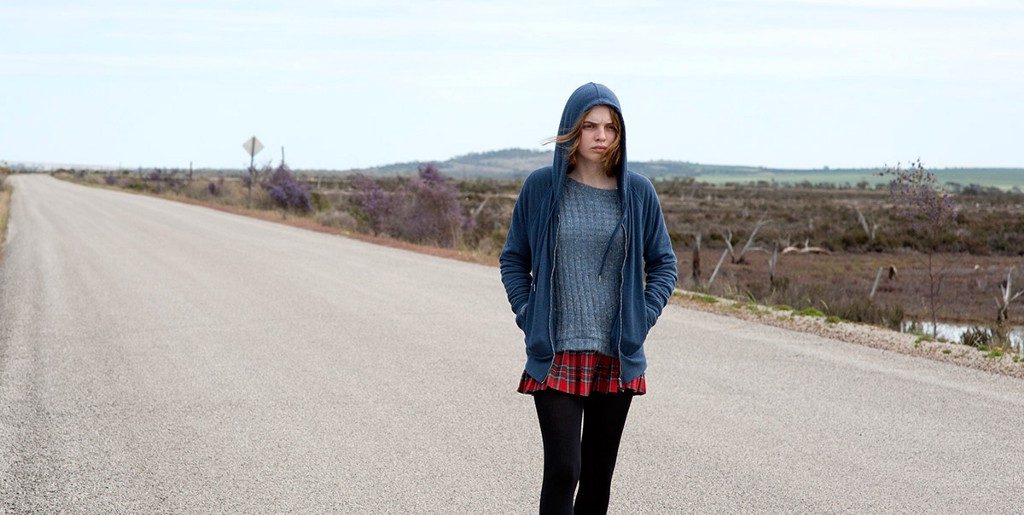Sue Brooks is an Australian independent filmmaker. She directed and co-produced “Japanese Story,” which won the International Federation of Film Critics FIPRESCI award, as well as 29 awards — including 8 AFI (now AACTA) awards — at the Cannes Film Festival. Brooks also directed “Road to Nhill,” which won the prestigious Thessaloniki prize for best film. She has directed the well-received short films “Drover’s Wife” — based on the Murray Bail short story — and “An Ordinary Woman,” as well as directing a number of episodes of “Seachange,” a popular ABC drama. Brooks also co-produced the feature documentary “Hope,” about the survival of Amal Basry, after the refugee boat SIEV X, carrying 400 people, sank on its way to Australia. “Looking for Grace” is the first feature film written by Sue Brooks. (Press materials)
“Looking For Grace” will premiere at the 2015 Toronto International Film Festival on September 15.
W&H: Please give us your description of the film.
SB: It is a film about both the small moments and the big moments in life. It is told from different points of view and focuses on an ordinary family going through some funny, sad and challenging moments over a few days. The story starts with Grace, who has stolen some money from her father’s safe and is heading off with her best friend, Sappho, to see their favorite band.
W&H: What drew you to this story?
SB: I wrote the script, which is unusual for me. I usually direct and Alison Tilson usually does the writing, but when we started, Alison encouraged me to do more of the writing. Other projects then went ahead, and we put it aside. But one day, Alison read it again and said, “We have to make this.” What drew me to writing it was something I still don’t quite understand myself — something about love, being lost, fate and which seat you get to sit in in the car.
W&H: What was the biggest challenge in making the film?
SB: Getting the film financed was definitely the hardest part. It was a nightmare. Some people got it and loved it. Some people had no idea what we were on about. They didn’t hate it; they were just bewildered by it. We kept being shortlisted and then not getting over the line. And the advice was always the same: Make it more like the standard three-act structure, raise the stakes and make the story arcs adhere to the grids that we are familiar with and we know work. In other words, make it more “normal.”
We tried doing all of this, and every time the script lost the very thing it had going for it, which was its own shape and patterns and curious point of view. Fortunately, in the end, we had enough people who could see it for what it was, and we got it made.
W&H: What do you want people to think about when they are leaving the theater?
SB: That they had had a good time watching the film and that life is curious and precious.
W&H: What advice do you have for other female directors?
SB: Hang in there. Work with people who understand what you are trying to do. Don’t spend time thinking about your detractors.
W&H: What’s the biggest misconception about you and your work?
SB: I don’t know. I think when you work outside the “normal,” well-worn structures, it is riskier and you are never sure what people’s reactions will be. There is a space between our work and the audience. What is remarkable is that some people understand our work far beyond our dreams.
W&H: How did you get your film funded? Share some insights into how you got the film made.
SB: “Looking for Grace” was funded in a fairly standard Australian model. Palace Films (Australian distributor), Fortissimo Films (international sales agent), the Melbourne International Film Festival Premiere Fund and Film Victoria were all early and clear supporters. But it took years to raise the rest of the finances. Eventually we cut the budget, rejigged the finance plan and tried again. ScreenWest came on board with a generous part of the budget, and that almost got us there. The final pieces of the puzzle came together with support from Screen Australia, some reinvestment and the rebate.
W&H: Name your favorite woman-directed film and why.
SB: I love too many to select one. I love Jane Campion’s “Sweetie” for that fabulous character and her uncompromising boldness. I love Rachel Perkins’ “Bran Nue Dae” for its joy and fun and what it does for your heart.
I love Claire Denis’ “35 Shots of Rum” for what it does for your soul and imagination. Who knows what that film is about, but it was an amazing feeling to be in the cinema and going on such a big journey with the rest of the audience. I can still remember stumbling out on to the street in a daze of euphoria with friends going, “What was that?!”
I love Sofia Coppola’s “Lost in Translation,” particularly the scene where Bill Murray whispers into Scarlett Johansson’s ear and we can’t hear what he says, but we are totally happy not to know. I love Marleen Gorris’ “A Question of Silence” and how she allows space for us to make up our minds about the women and their actions, and the restraint in both the script and the performances. I love Agnes Varda’s “The Gleaners and I” for its wisdom.






